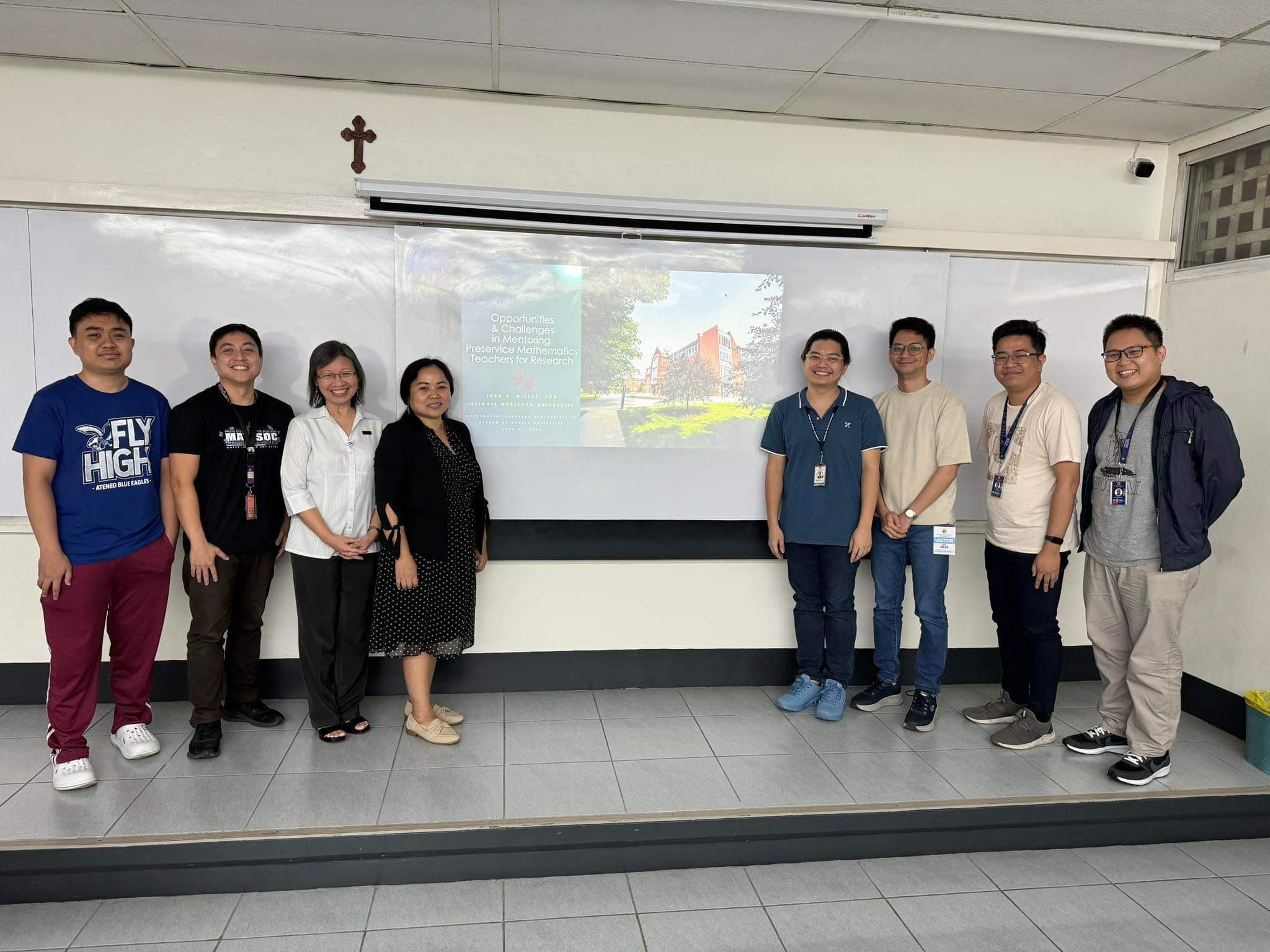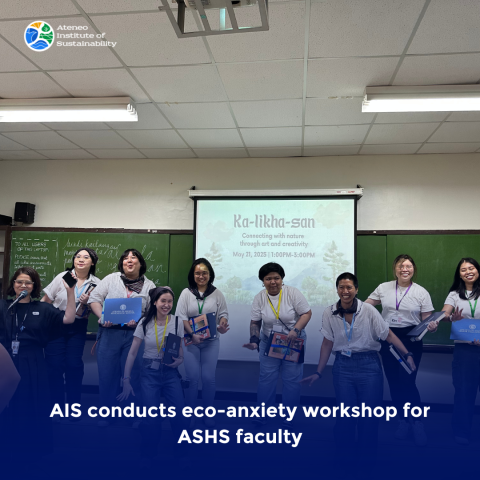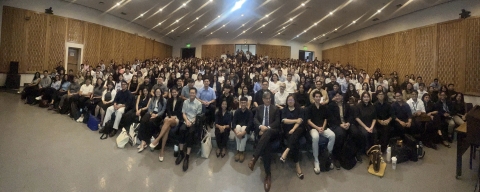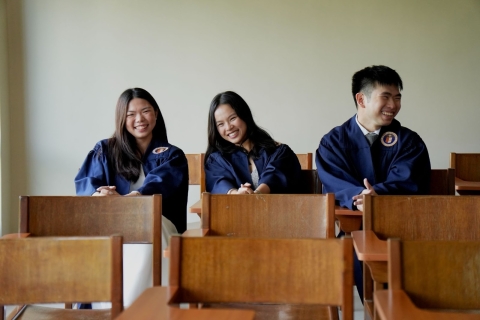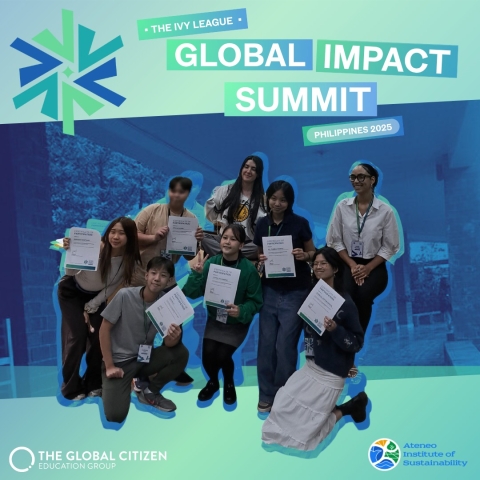Mentoring preservice mathematics teachers for research
11 Aug 2024 | Errol Matthew C Garcia, PhD
The Didactics of Mathematics Research Group (DiMRG) of the Department of Mathematics recently hosted another installment of the Mathematics Research Seminar Series. The featured talk, entitled “Opportunities and Challenges in Mentoring Preservice Mathematics Teachers for Research,” was delivered by Dr. Leah Nillas of Illinois Wesleyan University given on 27 June 2024, both on-site and online. Dr. Nillas's research focuses on mentoring K-12 preservice teachers and exploring their experiences and practices worldwide. She began her presentation by sharing images from her observations of lesson study implementations in Taiwan and Japan, as well as professional development programs in Thailand, to illustrate her points.
Dr Nillas' talk particularly focused on self-study teacher research (Samsara, 2011), a reflective practice where teachers systematically investigate their own teaching methods to enhance educational practices and student outcomes. In her research, senior K-12 preservice teachers, deployed in local schools in Illinois, USA were asked to do self-study research during their preservice teaching. She highlighted the use of self-study research as opposed to lesson study in some schools, attributing the preference to cultural factors. For instance, in the context of Illinois, Dr Nillas noted a detachment between universities and K-12 schools, where lesson study is primarily seen as a short-term professional development tool rather than a sustained practice with long-term goals. Consequently, she identified an opportunity and a challenge: the need to adopt professional development methods superior to lesson study. Self-study, she argued, engages preservice teachers in reflective thinking, connects research to practice, and addresses problematic learning areas more effectively.
Furthermore, the implementation of self-study prompted a second opportunity, which is the rethinking of the traditional mathematics curriculum. This led Dr Nillas to enhance her curriculum and pedagogy courses, enabling preservice teachers to connect students to their culture and community. She emphasized the importance of making inequity, power, and activism explicit components of the teaching for social justice curriculum, thereby fostering a more inclusive and socially aware educational environment.
The third opportunity and challenge focused on making math relevant to students. Dr Nillas presented several examples to illustrate this point, showing how connecting math to students' communities can motivate them to learn important mathematical concepts. For instance, under the topic of linear algebra, students explored the issue of fair trade and labor by analyzing the cost of a pair of Kobe V shoes priced at $160 in relation to the meager wages of factory workers. In probability, they investigated where lottery dollars go. Other examples included discussions on religious tolerance and undocumented immigration in the US. These real-life situations prompted the critical question of how teachers can incorporate such relevant contexts into mathematics topics to enhance student engagement and understanding.
The fourth opportunity and challenge is connecting with students to improve learning, which promotes students’ self-esteem and motivation, and improves attitudes to dissolve boundaries based on differences in the classroom. Dr Nillas emphasized that fostering a positive and inclusive classroom environment is crucial for student success.
The fifth and final opportunity and challenge is improving practice through research. Dr Nillas emphasized that linking research and practice in mathematics education is essential for addressing critical issues (NCTM, 2012). By implementing formative assessments and reflecting on their impact, teachers can enhance both their instruction and students' learning. However, she highlighted that local issues can influence the choice of research topics. Dr Nillas stressed that social and cultural concerns can help shape relevant research topics.
Dr Nillas also shared some of the experiences of the preservice teachers who undertook the self-study research. One preservice teacher reflected on how engaging in self-study significantly enhanced their professional practice, stating that it pushed them to take risks in the classroom. They noted that without the self-study, they might not have tried various teaching methods and group activities. The process also required daily reflection, which led to continuous growth and frequent adjustments to their teaching style. Overall, the self-study helped in developing their teaching style and encouraged them to experiment in their classroom.
Dr Nillas concluded her talk by expressing pride in the global reach of their students’ self-study research projects, highlighting that they are being read by people around the world, as shown by the readership map available on their website.
